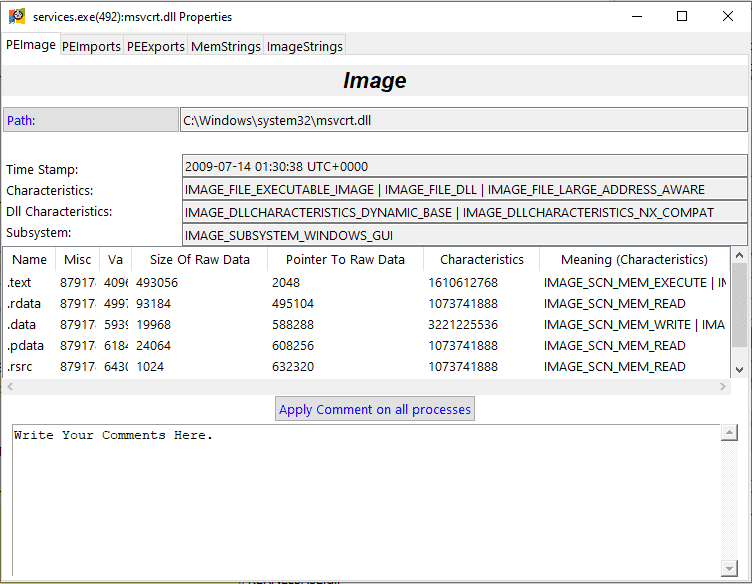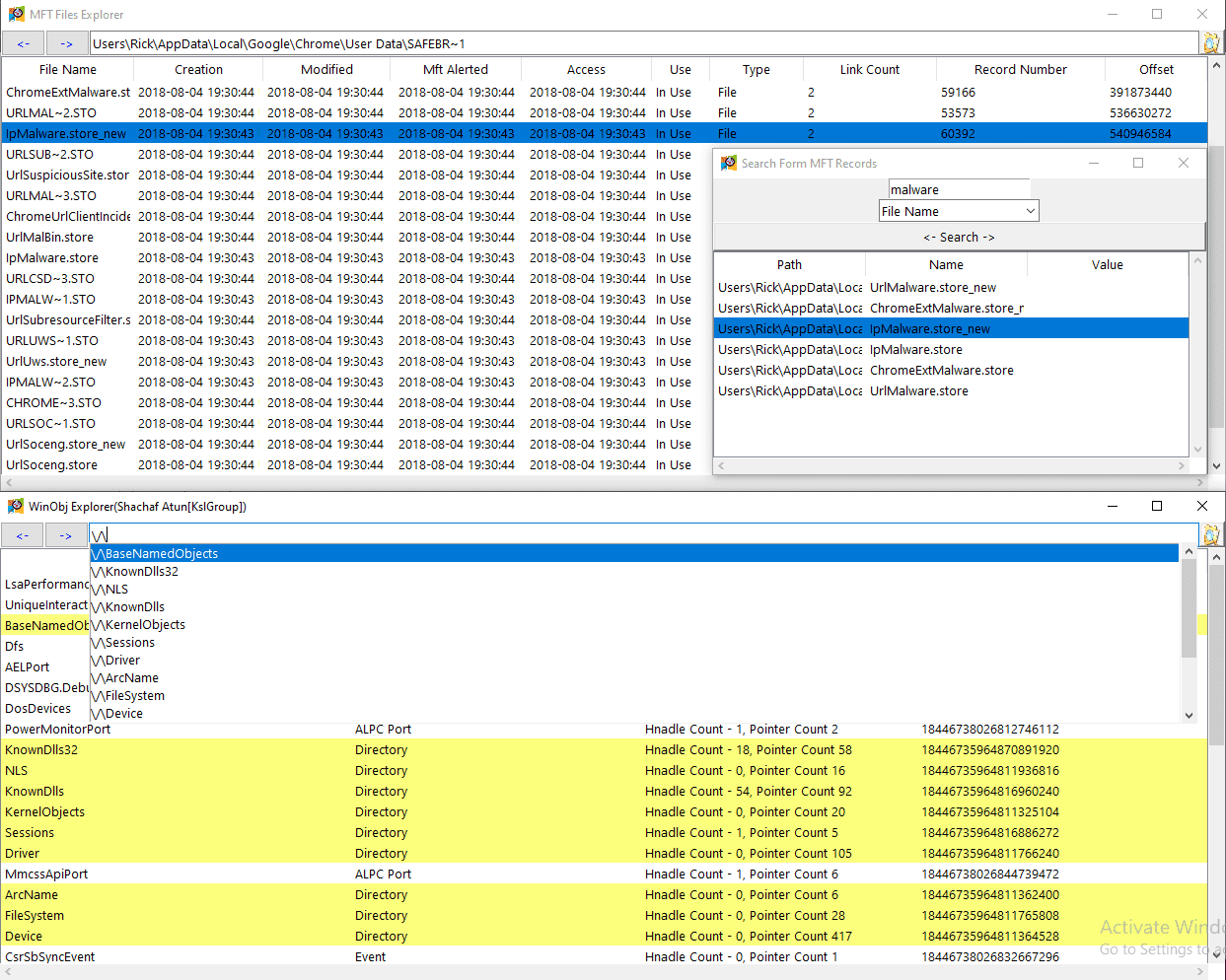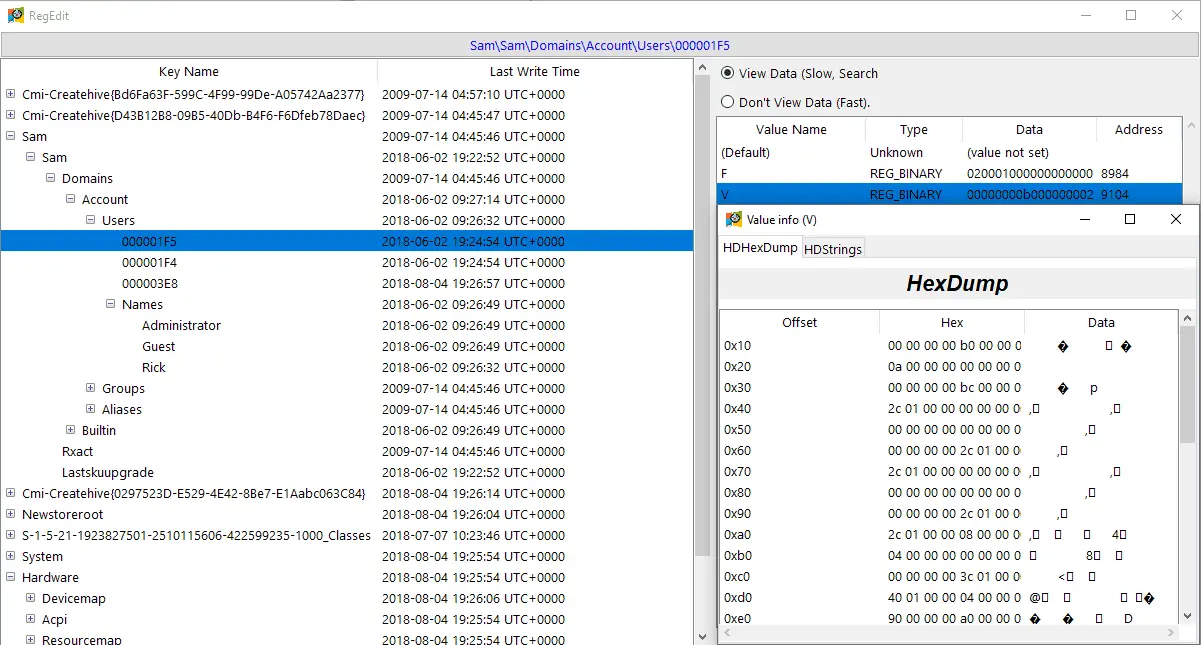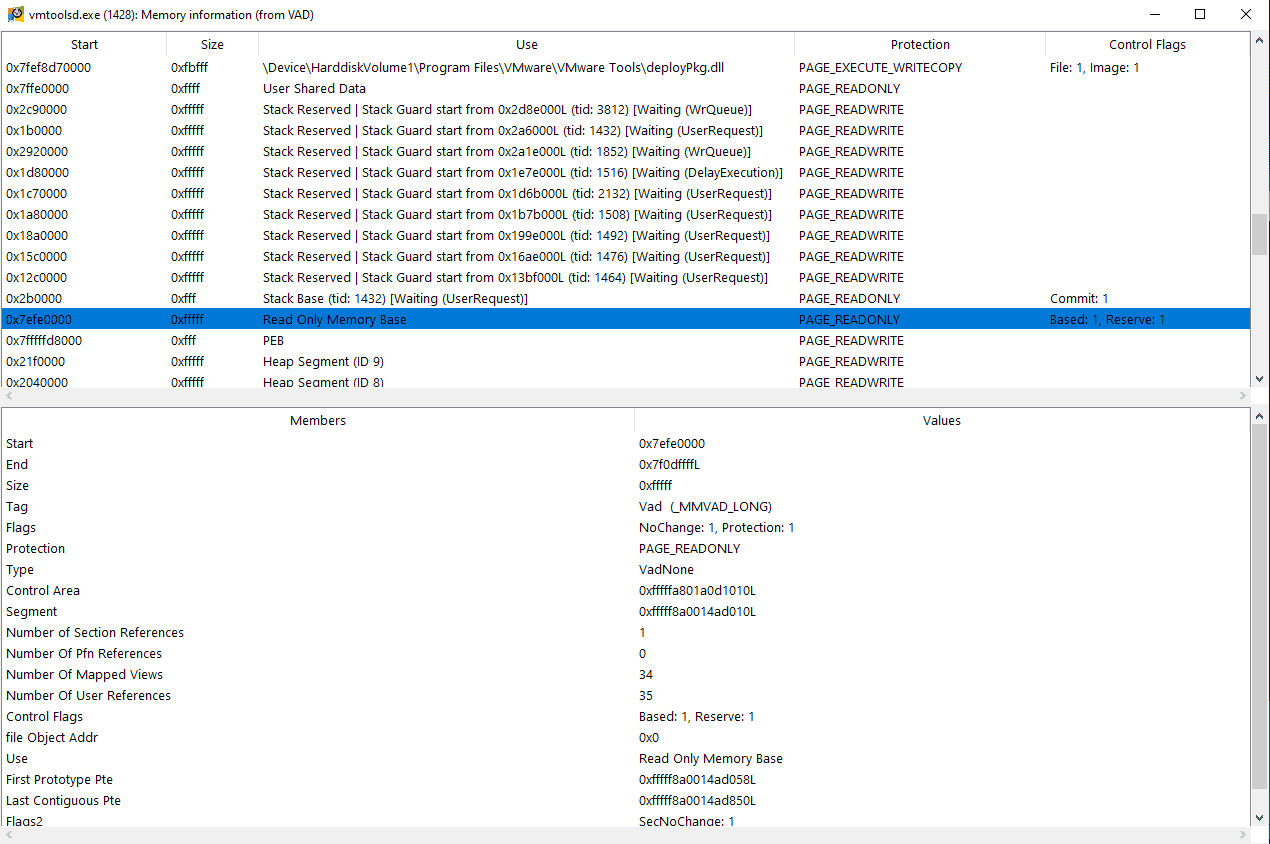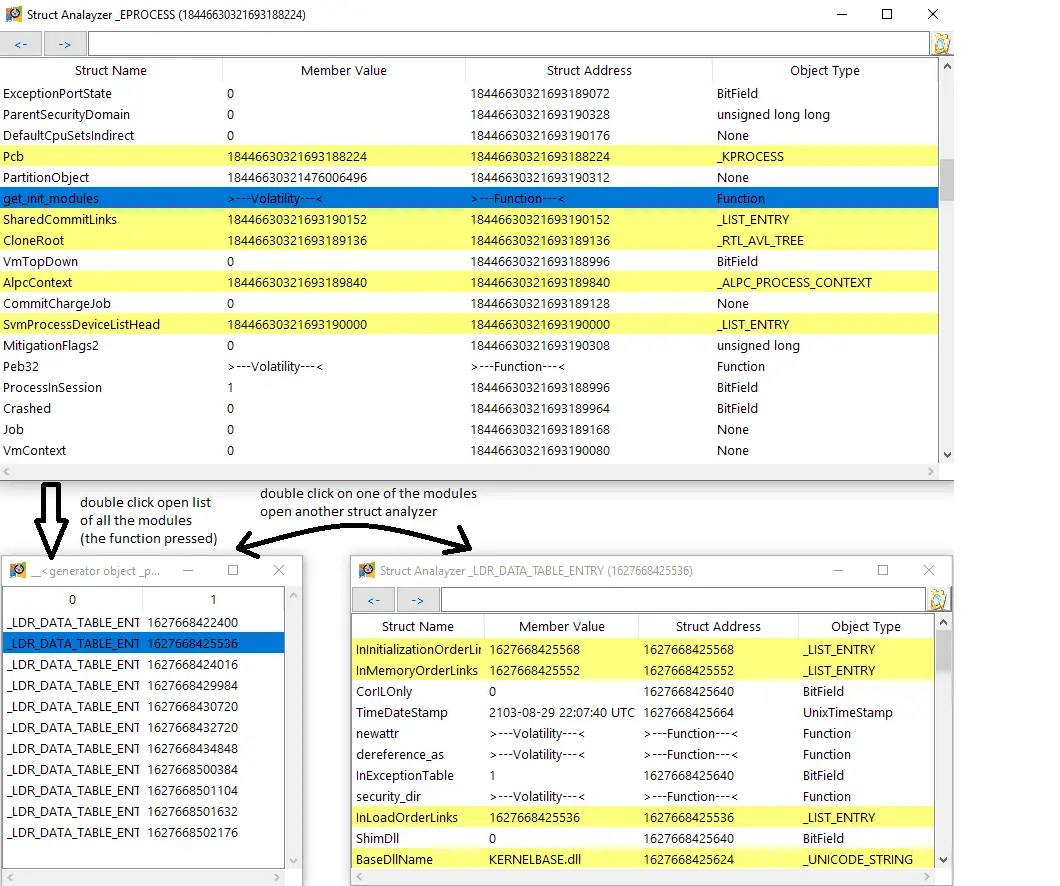
VolExp
Volatility Explorer
This program allows the user to access a Memory Dump. It can also function as a plugin to the Volatility Framework. This program functions similarly to Process Explorer/Hacker, but additionally it allows the user access to a Memory Dump (or access the real-time memory on the computer using Memtriage). This program can run from Windows, Linux and MacOS machines, but can only use Windows memory images.
Some Features:
python2 memtriage.py --plugins=volexp
- Some of the information display will not update in real time (except Processes info(update slowly), real time functions like struct analyzer, PE properties, run real time plugin, etc.).
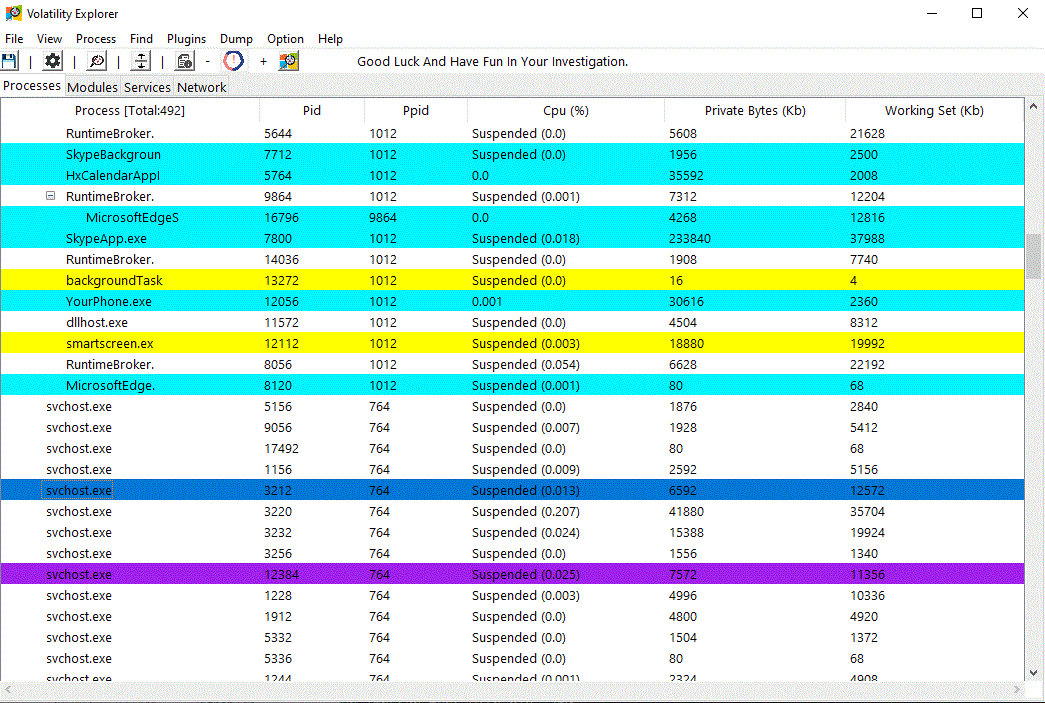
- The program also allows to view Loaded dll’s, open handles and network connections of each process (Access to a dll’s properties is also optional).
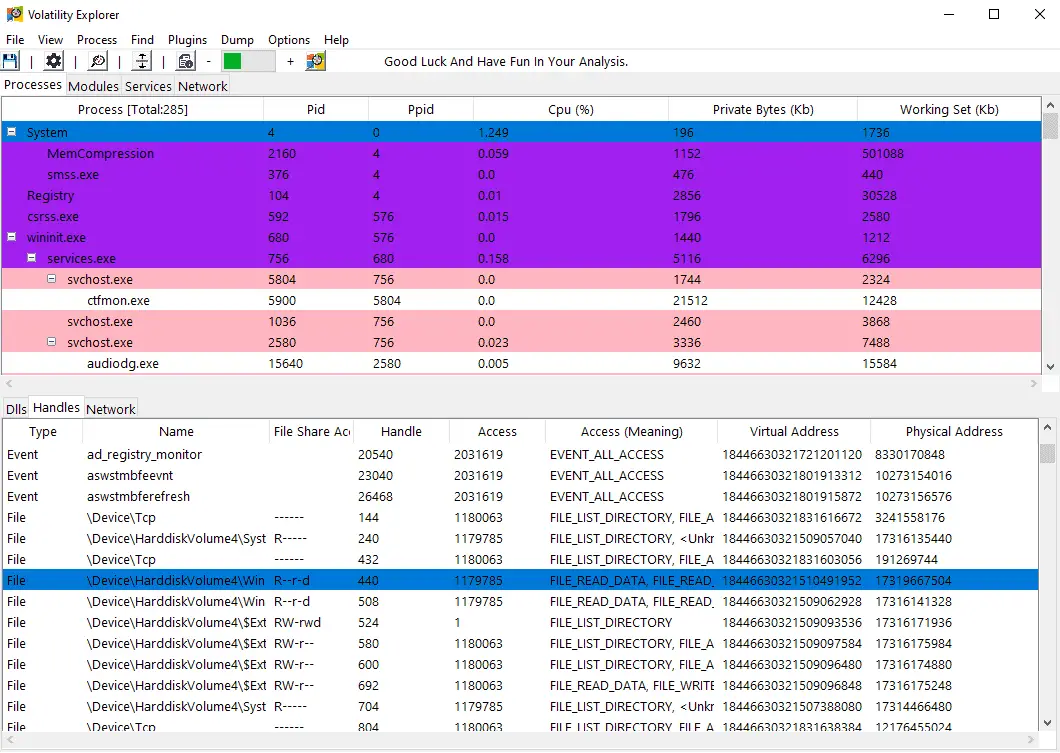
- To present more information of a process, Double-Click (or Left-Click and select Properties) to bring up an information window.
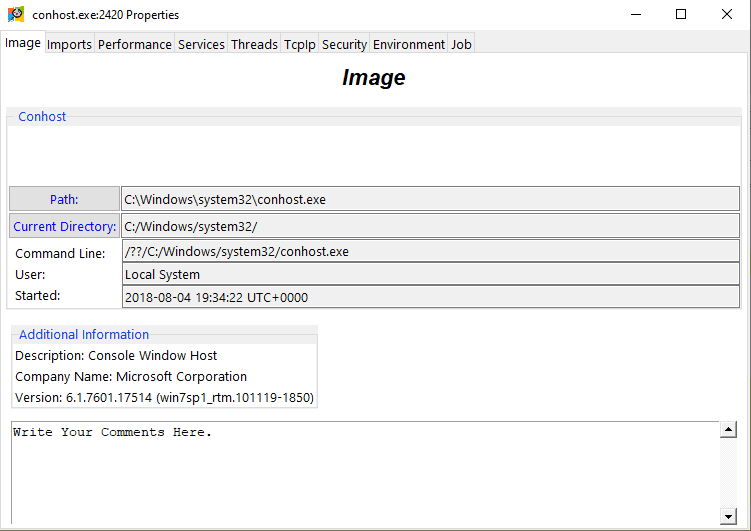
- The program allows the user to view the files in the Memory Dump as well as their information. Additionally it allows the user to extract those files (HexDump/strings view is also optional).
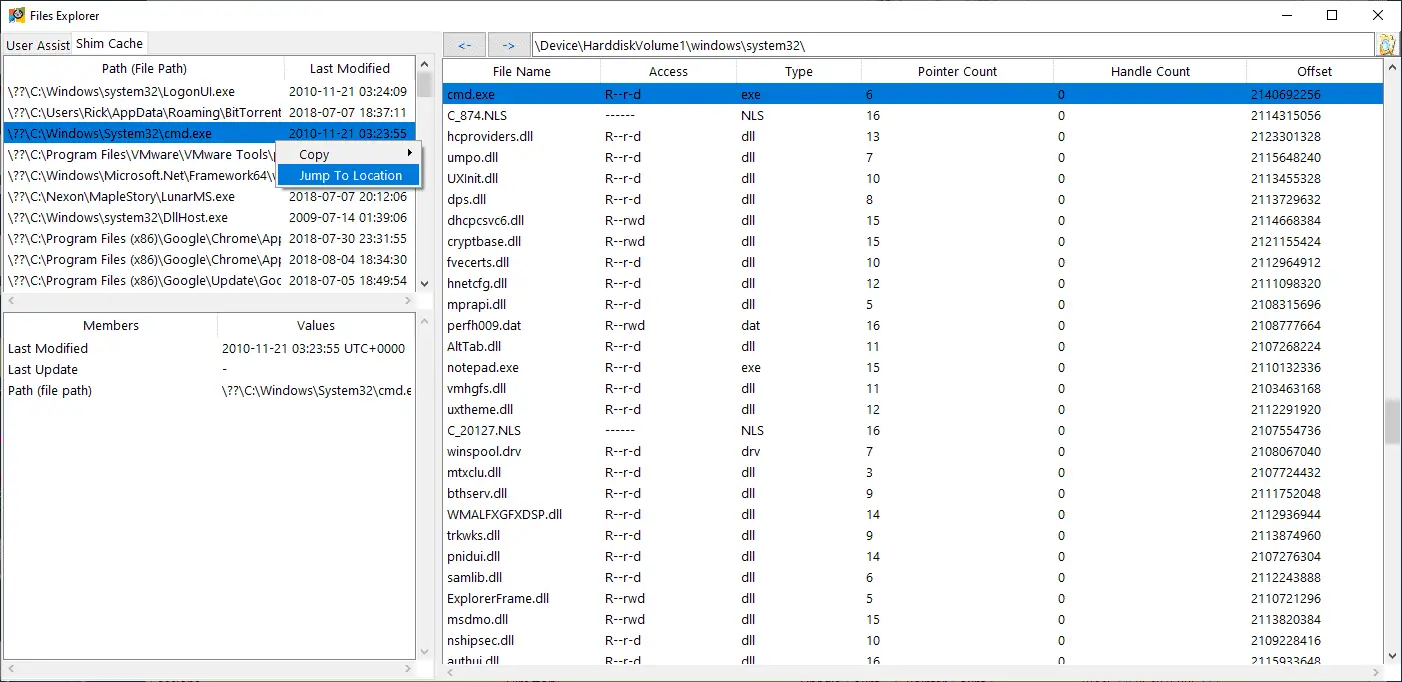
- Additionally, the program supports struct analysis. (writing on the memory’s struct, running Volatility functions on a struct is available). Example of getting all the load modules inside _EPROCESS struct in another struct analyzer window:

- The Program is also capable of automatically marking suspicious processes found by another plugin. Example of a running threadmap plugin:
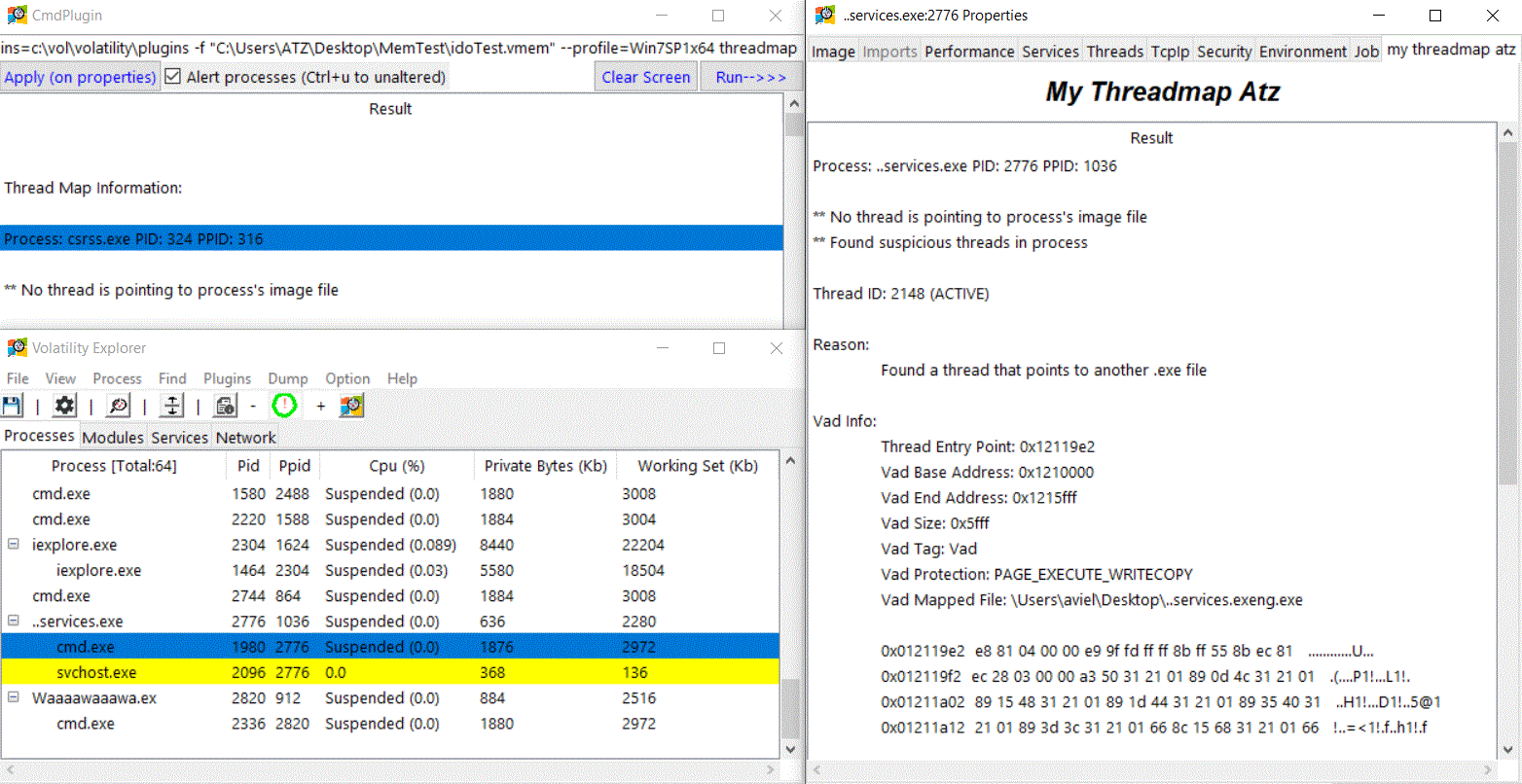
- View memory use of a process.
- Manually marking a certain process and adding a sidenote on it.
- User’s actions can be saved on a seperate file for later usage.
Install
git clone https://github.com/memoryforensics1/VolExp.git
Download the volexp.py file (download the memtriage.py file as well and replace it with your memtriage.py file if you want to use memtriage https://github.com/gleeda/memtriage).
Use
- As a standalone program:
python2 volexp
- As a Volatility plugin:
python2 vol.py -f <memory file path> --profile=<memory profile> volexp
Tutorial
Copyright (C) 2020 memoryforensics1
Source: https://github.com/memoryforensics1/
